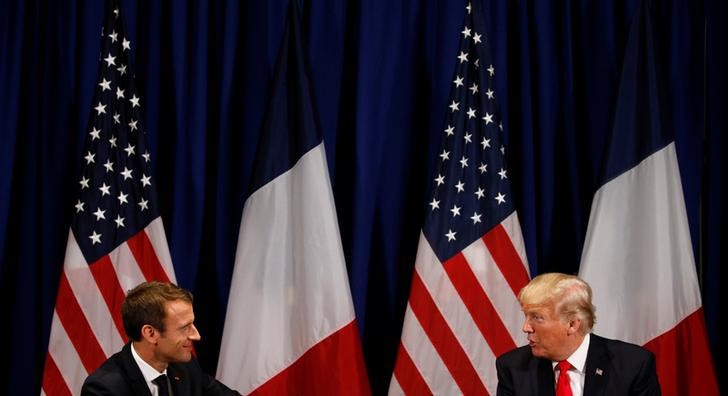Investing.com - The U.S. dollar was broadly higher on Monday, as optimism over the U.S.-China trade conflicts supported risk sentiment, despite further signs of a slowdown in the U.S. manufacturing sector.
The U.S. Dollar Index, which measures the greenback’s strength against a basket of six major currencies, rose 0.3% to 97.852 as of 10:18 AM ET (14:18 GMT), thanks largely to gains against the safe-haven yen and Swiss franc, as well as against sterling.
Speaking at the G7 summit in Biarritz, France, on Monday, U.S. President Donald Trump said that he had received two phone calls from Chinese officials over the weekend urging new talks, which he interpreted as a signal that China was willing to make concessions in the ongoing trade dispute.
The Chinese Foreign Ministry said it was not aware of any phone calls between the two nations but Vice Premier Liu He said he wanted to solve their trade differences as calmly as possible.
Tensions escalated on Friday after both the U.S. and China announced new tariff measures and Trump appeared to threaten to use emergency powers to force U.S. companies to stop making goods in China.
The trade noise overshadowed a light domestic data schedule, which showed that core durable goods orders (a measure that excludes volatile big-ticket items) fell 0.4% in July, and also rose by less than originally reported in June.
Elsewhere, the euro was down 0.2% at 1.1117, as the closely-watched German Ifo business climate index fell more than expected to a new seven-year low.
Hopes of a quick and effective response to support the eurozone economy may be premature, some argue.
"Everyone is very excited about a German stimulus, but Germany is constrained by its own debt rules and probably won’t be galvanized to provide much stimulus until unemployment spikes significantly," Megan Greene, a senior fellow at the Harvard Kennedy School of Government, said via Twitter.
In emerging markets, the Brazilian real fell to its lowest in nearly a year amid concerns at President Jair Bolsonaro's missteps with regard to the Amazon fires. Piqued by European threats not to ratify a recent trade deal with the Mercosur trading bloc, Bolsonaro responded at the weekend with a Facebook post insulting the wife of French President Emmanuel Macron. To make matters worse Monday, new data showed Brazil's current account deficit widened to the most since 2015 in July, although foreign direct investment picked up after a sharp dip in June.
